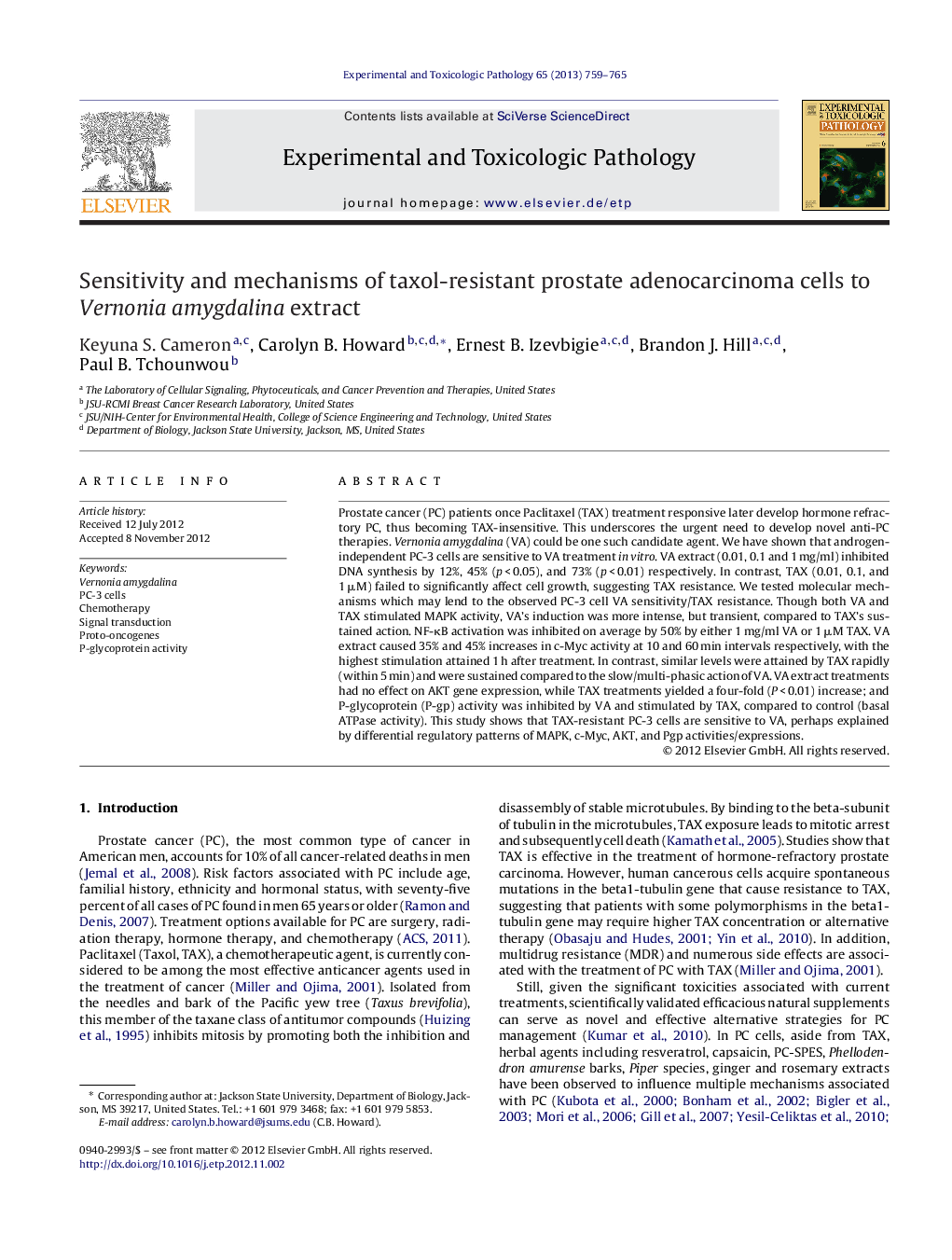| Article ID | Journal | Published Year | Pages | File Type |
|---|---|---|---|---|
| 2499161 | Experimental and Toxicologic Pathology | 2013 | 7 Pages |
Prostate cancer (PC) patients once Paclitaxel (TAX) treatment responsive later develop hormone refractory PC, thus becoming TAX-insensitive. This underscores the urgent need to develop novel anti-PC therapies. Vernonia amygdalina (VA) could be one such candidate agent. We have shown that androgen-independent PC-3 cells are sensitive to VA treatment in vitro. VA extract (0.01, 0.1 and 1 mg/ml) inhibited DNA synthesis by 12%, 45% (p < 0.05), and 73% (p < 0.01) respectively. In contrast, TAX (0.01, 0.1, and 1 μM) failed to significantly affect cell growth, suggesting TAX resistance. We tested molecular mechanisms which may lend to the observed PC-3 cell VA sensitivity/TAX resistance. Though both VA and TAX stimulated MAPK activity, VA's induction was more intense, but transient, compared to TAX's sustained action. NF-κB activation was inhibited on average by 50% by either 1 mg/ml VA or 1 μM TAX. VA extract caused 35% and 45% increases in c-Myc activity at 10 and 60 min intervals respectively, with the highest stimulation attained 1 h after treatment. In contrast, similar levels were attained by TAX rapidly (within 5 min) and were sustained compared to the slow/multi-phasic action of VA. VA extract treatments had no effect on AKT gene expression, while TAX treatments yielded a four-fold (P < 0.01) increase; and P-glycoprotein (P-gp) activity was inhibited by VA and stimulated by TAX, compared to control (basal ATPase activity). This study shows that TAX-resistant PC-3 cells are sensitive to VA, perhaps explained by differential regulatory patterns of MAPK, c-Myc, AKT, and Pgp activities/expressions.
